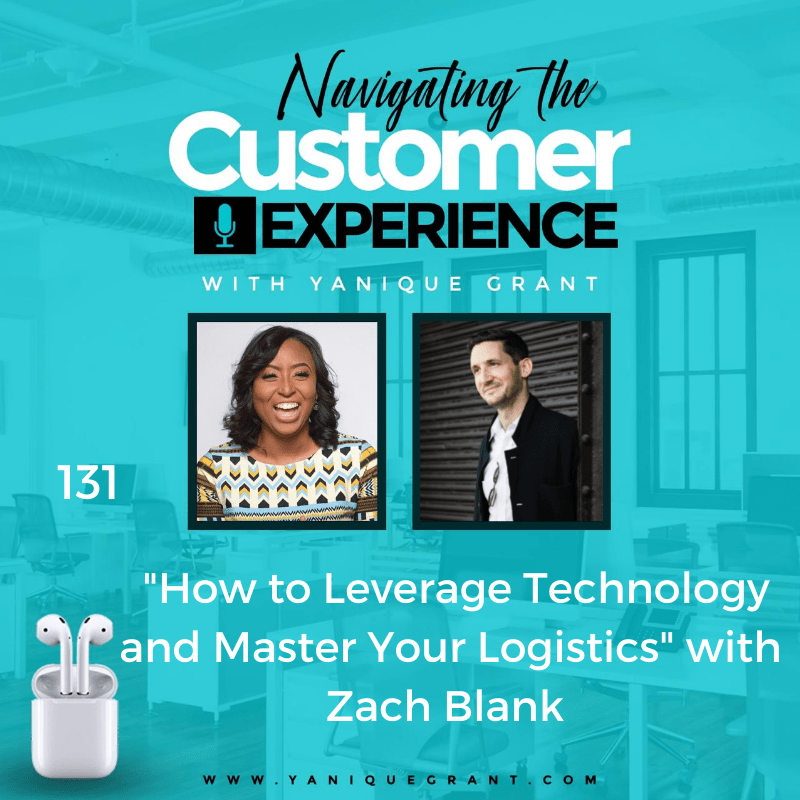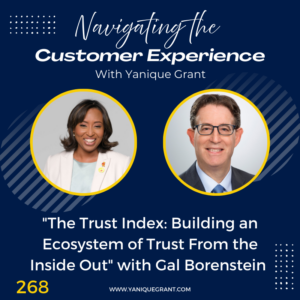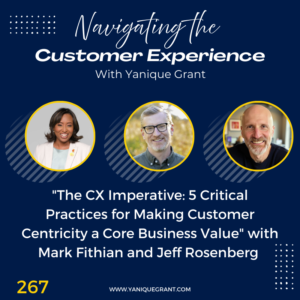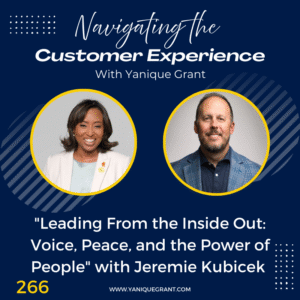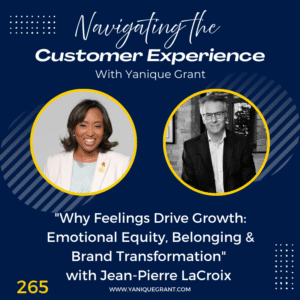Zach Blank is an entrepreneur, experience designer and technologist based in Portland, Oregon. As the CEO of Straightaway, Zach leads creative teams to think that the most inspired results are inevitable when design and technology conflict.
Zack has spent his career with product and experience designers, strategists, engineers, and creatives. Through these relationships, he has inspired and been inspired to push forward leading technology innovations.
Questions
- Could you share with us a little bit about your journey? How it is that you got to where you are today?
- Explain to us exactly what is Straightaway.
- What opportunities do you see in the logistics market that probably are not existing today, especially in light of the pandemic that we’re going through, have you seen that side of the business or that industry really vamped up since COVID? But how have you seen trends in that area? Has technology being applied more? Is there anything new that you think our listeners would benefit from based on your insights?
- What are maybe one to three things that you think are critical for a driver to really deliver an excellent experience?
- What are some tips for building strong and efficient teams? Because I imagine even though the drivers are doing their deliveries, they have to kind of support each other?
- Can you share with us what is the one online resource, tool, website or app that you absolutely can’t live without in your business?
- Could you share with us maybe one or two books that have had the biggest impact on you? It could be a book that you read a very long time ago, or even a book that you read recently, but it has had a great impact on you.
- Could you share with us maybe one thing that’s going on in your life right now, something that you are really excited about, it could either be something that you’re working on to develop yourself or your people.
- We have a lot of listeners who are business owners and managers who feel like they have great products and services, but they lacked the constantly motivated human capital, the people part of it, if were sitting across the table from that person, what’s the one piece of advice that you would give them to have a successful business as an entrepreneur yourself?
- Where can listeners find you online?
- Do you have a quote or saying that during times of adversity or challenge you’ll tend to revert to this quote? It kind of helps to get you back on track and keep you focused. Do you have one of those?
Highlights
Zach’s Journey
Zach shared that like most entrepreneurs, his journey is a roller coaster and full of weird strange turns. And he likes to start back when he was in elementary school. He’s fond of the story of selling beaded necklaces and little things like that in front of his elementary school when he was in maybe the fourth or fifth grade. And that’s when it all began. And obviously when you’re eight, nine years old, there’s not much planning to what you’re doing there. But the bug, what he was realizing was pretty intense.
And that stayed with him, he was always kind of on that hustle. It wasn’t necessarily a motivation to make money; it was more maybe better described as a motivation to get reactions out of people. He was a one of those kids who acted out in class and he thrived the reaction from people and so to make something and build something and see people want to pay for that, he got a thrill out of that and a lot of pride.
So, that carried with him until now. A couple other key milestones were building an eCommerce, that was the first eCommerce rock climbing site back in the late 90s he thinks it was called Rock Air. And that was selling rock climbing equipment to rock climbing enthusiasts; he was a competitive rock climber at the time. And that was really spurred on by his dad, who was also an entrepreneur saying, “Hey, there’s this thing, the internet that seems to be doing really well. And you seem to know a lot about rock climbing, there’s nothing out there, let’s do something.”
And that was the first real foray into it beyond the bead endeavour. And then fast forward to today, he runs a company called Straightaway that is really disrupting the logistics industry in a way that nobody else is really paying much attention to and he’s excited to explain a little bit more what he means about that.
What is Straightaway?
Zach stated that today Straightaway is a native iOS and Android application to help delivery drivers primarily be as effective and efficient with their routes. Imagine the Amazon or UPS, USPS, DHL, all of those really big carrier drivers; those people are doing up to 200 sometimes more stops a day. And first of all, that’s really hard. It’s hard to imagine, think for a second.
Me: When I have to make like 10 stops for the day to get work done, just a drop off and pickup it’s exhausting, much less that times 20 or 200.
Zach agreed and stated that he has never done it. He has done ride alongs with drivers, and the hustle and the tricks and all of these things that are really unimaginable. And now imagine people doing it, they’re new to that job and they’re looking at these 200 stop days, and maybe they know their city, maybe not, maybe they just moved there. It’s near impossible.
And so they build the technology and tools to help them navigate that, that’s what they are today. And what they’re building currently is infrastructure to support local logistics. And that’s something that there hasn’t been a ton of investment in yet and something that they’re very excited and bullish about.
Opportunities in the Logistics Market and Technology
Me: So you are basically as you indicated in the logistics market, what opportunities do you see in the logistics market that probably are not existing today, especially in light of the pandemic that we’re going through, have you seen that side of the business or that industry really vamped up since COVID? I’m sure, but how have you seen trends in that area? Has technology being applied more? Is there anything new that you think our listeners would benefit from based on your insights?
Zach shared that they’re kind of a dark inflection point right now, there’s a lot of disappointing news coming out about the treatment of drivers, it’s not necessarily the overt treatment of companies setting out it’s more the result. And it’s the result of how the drive and demand and a pretty constant supply. So, he thinks it’s easy to imagine that COVID has really disrupted and changed the logistics industry and package delivery more than anything else and food delivery is way, way up.
And there’s been more delivery drivers, the infrastructure by and large hasn’t changed though. So the result is, these drivers are busier than they’ve ever been before. And that’s what they’re looking at right now and they’re looking at an industry that’s really suffering, and one that’s craving for change.
So what they’re setting out to do, their focus is a little bit different. These other companies, the bottom line has nothing to do with the driver, they need to get packages delivered to customers and that’s the objective. They believe that by focusing on the driver and focusing on that experience, and making that as good as it can be, then everybody will win. So the opportunity that exists right now is to instead of treating drivers like a commodity, to create tools and focus on them and empower them to be as effective in their jobs as they can be and that’s their mission, and that’s what they’re going after.
Tips for a Driver to Deliver an Excellent Experience
Me: What are maybe one to three things that you think are critical for a driver to really deliver an excellent experience. Apart from the fact that he has to deliver the package, there’s a softer side of it in terms of communicating with the customer, is it that the technology updates the customer as to where the driver is along the way almost like an Uber? Or is it a case where the driver actually makes those telephone calls, which I think is humanly impossible for him to be calling 200 different stops, two to three times throughout the day, that would probably make him go insane. But how can he add the softer side of it to enhance the customer experience so the customer feels that more a part of the process? I’m sure you know if people don’t feel in the loop, it’s like they don’t know what’s happening and that’s when they get skittish and start to argue and complain.
Zach stated that there are a couple pieces to that. So, backing up a moment before getting into the driver customer interaction. The earlier part of the question, he thinks really talks to on the surface how simple the problem seems. And that’s the most powerful tool we can give a driver is to get them to understand where they are, where they’re going, and how to get there. And so, it’s a mapping problem. And mapping problems are tough, they’ve gotten easier, and they continue to get easier but they’re still tough when you take into account all of the shifting variables throughout the day. And by that he means traffic and road closures and other sorts of missed deliveries and change in deliveries and all those constraints that can change.
So, building the technology that can make sure a driver knows where they’re going and how they’re getting there. That’s kind of the baseline.
And then getting into the interaction between the driver and their customer. You’re absolutely right, it’s a fine line, you don’t want to open up a live line of communication between those two people. And that might seem counterintuitive with customer experience, generally speaking, transparency is a good thing.
In this case, it actually gets into security and safety concerns too, we don’t want drivers bombarded with messages when they’re driving, just simply, we don’t want to distract them period.
The other is a big problem that they face is these drivers go to buildings that have security codes, entrance codes, access codes. When they can’t get in the building to deliver the package, now their whole day is backed up, they’re standing there, maybe they’re trying to call the customer, they’re trying to find a safe place to leave it, they don’t want it to get stolen, they’re trying to do the best thing that they can.
So, how do you build in a layer that can allow that communication? “Hey, I’m trying to get into your building to leave this package, but make sure that that code isn’t accessible to bad actors and the wrong people.”
And so, they spend a lot of time thinking about that. Also, the first idea very naive from them was, well, what if we just put in a note system where one driver who gets the access code can leave it as an annotation on that stop for anybody else. Well, now as soon as someone downloads Straightaway, they can basically have a key to the city and they definitely don’t want that.
Me: I never thought of it that way. But yes, that’s crazy.
Zach shared that he interviewed a USPS driver a couple months ago talking about this problem specifically. And it was fascinating. He told him that, if you look hard enough at most apartment buildings or gated communities, anything that have an access like that, you’d look hard enough, you’ll find the code written somewhere, he said, some will like scratch it on rocks, or like put a sharpie kind of underneath it kind of like hidden spots, but within the delivery industry, they know. And it highlights the problem and the security risk. And it’s another one of those things they’re super interested in solving but it’s not easy to solve.
Me: Wow, that’s crazy. Technology, then there are so many variables as you just indicated that are out of your direct control. Because as you said, if you indicated to the customer that you would need to have access to the building or the home or the business place in order to have the package delivered and the necessary things were not put in place, it really does push back the experience for other people who are waiting on their packages who may be home, because he or she is left stranded there trying to figure out what do I do with the package? And as a customer, you don’t know some of those challenges, and most customers don’t really care what you’re faced with, they just want their item that they ordered. But the reality is, those are the challenges that the drivers face.
Me: What are some things that they try to do to overcome that? How do they compensate for situations like that, if they can’t genuinely leave packages feeling that it’s going to be safe? Because the company would now accept liability if something happens to the package if it was left in an unsafe environment?
Zach shared that the simplest thing to do is they just don’t leave the package. And they take it back and the customer gets notification that it couldn’t be delivered. And every company, he wants to be clear, every company has its own policy, and they don’t operate on that level.
They provide the tools to allow drivers to be successful, how they operate their route, and their policies are up to them. But that’s kind of the best case scenario. Worst case scenario, it gets left somewhere else where it’s not supposed to and then it gets stolen. That’s just package stuff does a huge problem as most listeners know and hopefully haven’t experienced, but I imagine many have. And that’s what happens.
Tips for Building Strong and Efficient Teams
Me: What are some tips for building strong and efficient teams? Because I imagine even though the drivers are doing their deliveries, they have to kind of support each other. I imagine that maybe they may need to call on their co-worker for assistance, maybe accessing a location that maybe they’re more experienced with. How do they ensure that they’re really working collaboratively and cooperatively together versus in silos? Because “Okay, I’m just concerned with my deliveries, my truck, I’m not concerned about anybody else. Because if I help him, then I’m going to get pushed back and that’s going affect my pay.” So how do you get them to work cohesively and collaboratively together?
Zach stated that if Yanique doesn’t mind, he’s going to take that question and apply it to something else that he knows a little bit more about. Because he hasn’t been a delivery driver on a team with years of experience, so he doesn’t think he can answer that question with any authority from that perspective. But from the perspective of building technology, and building the tools that they’re building for the drivers, he has a lot of experience and he can weigh in a little bit more there and some tricks that his team have employed recently that he found successful.
He considers himself a servant leader and he actually think it’s the easier way of leadership, it’s the more comfortable way of leadership and maybe that’s just for him, but just so that everyone’s on the same page, servant leadership is being there to serve your team rather than dictating orders, that’s the very oversimplified version of it.
Zack Blank
Now, taking that a step further, what he does with his team is he drives empowerment and ownership. So it’s sort of like, he likes to use the example of inception. If there are ideas that they’re trying to get across and it’s his job to paint the vision, and then for the team to figure out and own how it is they’re going to get there.
So it’s his job, where are they going? And their job, how are they going to get there and then actually get them there.
And so, they break down distinct tasks and everyone on the team is an owner of that and is accountable to that and when they feel like it’s their brainchild, they’re much more likely and much more invested in, it’s much more likely to be successful. And that’s kind of a driving thesis that he focuses on a lot with his team.
App, Website or Tool that Zach Absolutely Can’t Live Without in His Business
When asked about an online resource that he cannot live without in his business, Zach shared that this is a big plug for a partner of theirs. They use Intercom. intercom is a third party platform that enables communication with customers. So it’s pretty unique within Straightaway. So they’ve integrated Intercom technology tool, and it allows live chat between them and all of their drivers. And when he says their drivers, it’s a little bit unique, they’re not their employees, they actually pay them Straightaway.
Straightaway is a subscription service, they pay them, they are their customers. And so, they have a two minute SLA to respond to anybody. If anyone is having trouble with their route, they can hit chat right in Straightaway and that’s all powered by Intercom. And the other thing that that tool allows them to do is send very targeted messages to different people to help them improve their product. So we can do things like, let’s send a message to all drivers who’ve been using Straightaway for 3 months who do on average 150 to 160 stops, do those within 9 hours, and are located in Georgia, for example. They can get very, very targeted and they can send them a message and be like, “Hey, we’d like you to try out this new feature and give us feedback.” For example. So sort of everything that they do around their customer experience is driven through Intercom. And they’ve been using the platform for two and a half going on three years now and it’s just instrumental to their process.
Books That Have Had the Greatest Impact on Zach
When asked about books that have an impact, Zach shared that he sort of sped read Measure What Matters: How Google, Bono, and the Gates Foundation Rock the World with OKRs by John Doerrrecently. It’s a fantastic book. It’s a really quick read. It explains what OKRs are which is a management framework, it stands for Objectives and Key Results and it is a goal setting framework.
And John Doerr, the author of it didn’t invent it but he’s probably one of the most, if not the most outspoken leaders about it. Andy Grove out at Intel, he invented it.
Anyway, the great part about it is it’s all told from the perspective of all of these very, very notable companies that we all know and love, and how they implemented OKRs in their early days to be successful.
And these are companies like Google, which John Doerr was an early investor, and he was the one who brought OKRs to Google when they were still in a garage and got those up and running.
So, Measure What Matters is a fun read just if you’re interested in nothing other than early day successful start-up stories, it’s sort of fun. And then I think the tools in it are instrumental for building a team that’s goal oriented.
He’s in Portland, Oregon, which is where Nike is from so he’s in Nike town. His wife works out there. He spent many years consulting in a previous life out there, he’s fond of the brand and he’s not done yet, but he’s pretty much through Shoe Dog: A Memoir by the Creator of NIKE which is Phil Knight, the founder’s memoir.
And that again, another fun story about how companies are built. The thing he loves about that book is Nike really started coming up in the early 70s and the stories that Phil tell in there, he could kind of equate to, if you want to be successful in business in the early 70s, all you have to do is lie.
It’s a very fun read of the stories and the things that he said and how he stuck his neck out there. And some of the absurd situations and you look at it now it’s like, wow, the success that Nike’s had, it’s not even about humble beginnings, it’s just the balls, the approach and he doesn’t think that approach would work these days. And it’s just fascinating to him. It’s a really fun read.
What Zach is Really Excited About Now!
When asked about something that he’s working on, Zach shared that it’s very hard to choose one. He has so many personal ones coming up and he knows that’s not the focus here. The team has been so focused in heads down on building out their fleet platform, which they have a go to market motion starting next month, he’s extremely excited about.
They’re a customer obsessed organization, so everything that they build is from the focus of customers and feedback that they’ve gotten directly from them. So before they ever start designing, building ideating around something, they go and they talk to customers, and they throw out ideas and say, “Hey, will something like this be useful?”
So, they’ve been having those conversations around their fleet platform for a year now and they’ve been building for maybe the last 3 months on it, and another month ago before they really start getting it in the hands of their customers. And that’s going to accelerate their business tremendously, up until now, they sell and have relationships direct with drivers, and that’s fantastic.
And they’re always going to focus on the driver but through the fleet platform, they’re able to empower even more drivers in that scale, where entire fleets can onboard to Straightaway and use all of their features to not just transform the experience of one driver, but all of their drivers and thus their entire business.
Advice for Business Owners Who Lack the Constant Motivated Human Capital
Zach stated in other ways, “How do you keep your team motivated?”
He shared that it comes down to what he spoke about before, in its ownership. For the people that he works with, they’re very, very passionate about what they do and that is often designing interfaces and writing code. And that can be applied to so many different problems.
So it’s how do we keep them motivated on this problem, and it comes down to ownership. When people feel personally invested in something, they are going to fall asleep and wake up thinking about that. And that’s how he operates anyway. And maybe it’s a rosy picture that he thinks others operate that way. But he has put it into practice and he does see the results there.
Where Can We Find Zach Online
Email – zach@getstraightaway.com
Twitter – @zachianblank
LinkedIn – Zachary Blank
Quote or Saying that During Times of Adversity Zach Uses
When asked about a quote or saying that he tends to revert to, Zach stated that that’s the hardest question he has gotten. He doesn’t have a quote but he has a different tactic. He usually goes to motivational speakers on YouTube and he’ll pull up a random clip and he’ll sit there and he’ll listen or he’ll watch it. Some of his favourites, while polarizing, he still thinks he’s a great guy is Gary Vaynerchuk.
Me: And Gary’s awesome. Gary has his own podcast. Gary has quite a few books out there and he has a ton of free content that if you just need that extra oomph to get going, it will definitely provide that for you.
Please connect with us on Twitter @navigatingcx and also join our Private Facebook Community – Navigating the Customer Experience and listen to our FB Lives weekly with a new guest
Grab the Freebie on Our Website – TOP 10 Online Business Resources for Small Business Owners
Links
- Measure What Matters: How Google, Bono, and the Gates Foundation Rock the World with OKRs by John Doerr
- Shoe Dog: A Memoir by the Creator of NIKE by Phil Knight
The ABC’s of a Fantastic Customer Experience
Do you want to pivot your online customer experience and build loyalty – get a copy of “The ABC’s of a Fantastic Customer Experience.”
The ABC’s of a Fantastic Customer Experience provides 26 easy to follow steps and techniques that helps your business to achieve success and build brand loyalty.
This Guide to Limitless, Happy and Loyal Customers will help you to strengthen your service delivery, enhance your knowledge and appreciation of the customer experience and provide tips and practical strategies that you can start implementing immediately!
This book will develop your customer service skills and sharpen your attention to detail when serving others.
Master your customer experience and develop those knock your socks off techniques that will lead to lifetime customers. Your customers will only want to work with your business and it will be your brand differentiator. It will lead to recruiters to seek you out by providing practical examples on how to deliver a winning customer service experience!

